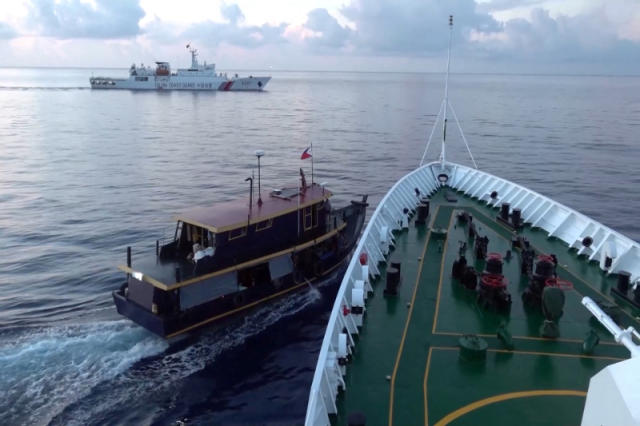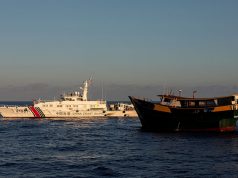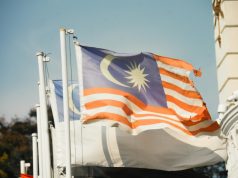
MANILA — The Philippines is contingency planning for an escalation of hostilities in the South China Sea, according to a senior military official, including a scenario where crew repel Chinese forces attempting to board Philippine vessels.
Ties between the two countries have deteriorated this year after several collisions and repeated standoffs near disputed features of the South China Sea, with the Philippines accusing China of aggressive, deliberate and dangerous maneuvers.
The Philippines has taken a tougher line with China this year, coinciding with its boosting of military ties with defense treaty ally the United States and increased security engagement with other Western powers.
“Expect more coercive actions from China, short of armed attack,” Alberto Carlos, chief of the Philippines‘ Western Command told CNN Philippines late on Wednesday.
“Next after the water cannon is probably ramming and also they will attempt to board our vessel, which is something that we will not allow them to do.”
That scenario, Carlos said, was part of Philippines war games exercises and academic discussions on what other actions China might take. The Philippines on Tuesday summoned China’s ambassador to protest “back-to-back harassments” at the weekend in different locations, including collisions and use of water cannon.
Beijing has repeatedly accused Philippine vessels operating in Manila’s exclusive economic zone (EEZ) of trespassing in Chinese waters.
The Philippines has grown increasingly wary of China’s coastguard and the presence of hundreds of Chinese fishing boats that it considers to be militia forces.
“We’re brainstorming this, we are wargaming this and we are prepared for any contingency that will happen,” said Carlos, whose remit includes defense of the Philippines‘ EEZ.
China claims sovereignty over almost the entire South China Sea, a conduit for more than $3 trillion of annual ship-borne commerce. Those claims, which an arbitral tribunal has declared baseless, extend to the exclusive economic zones of the Philippines, Vietnam, Indonesia, Malaysia and Brunei.









